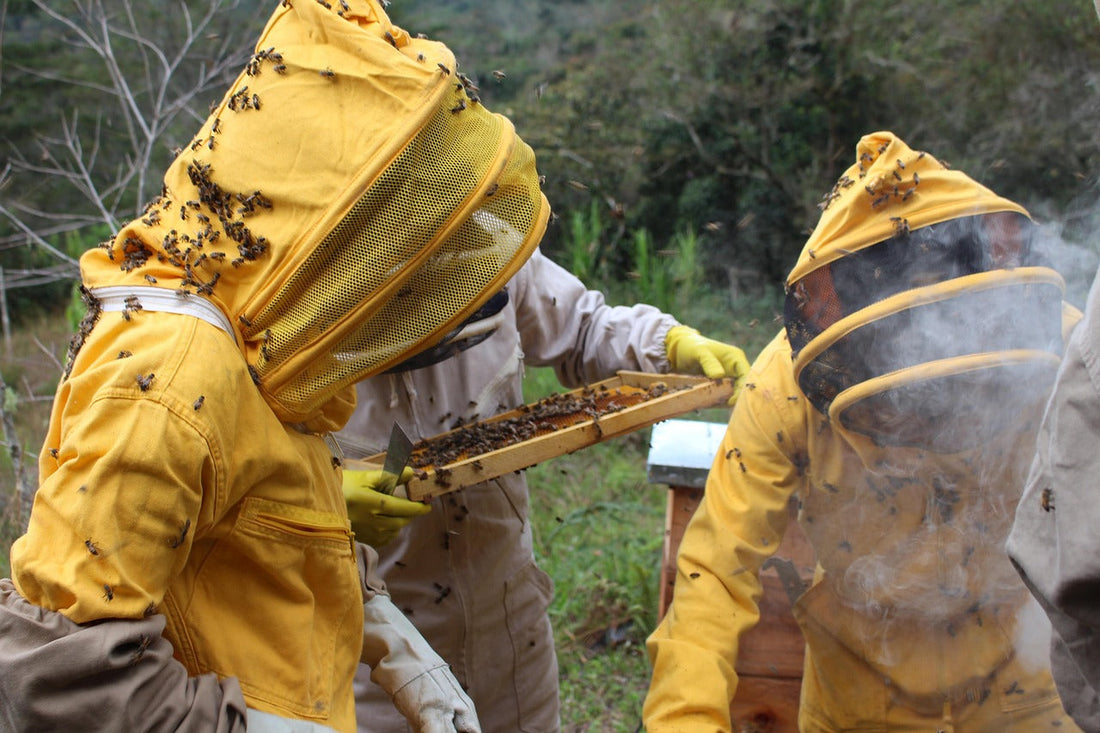When we think of beekeepers, we often picture someone calm, patient, and in tune with nature. But there’s so much more to it than just wearing a suit and collecting honey. Beekeeping is an art, a science, and a lifestyle all in one. It’s about understanding these tiny creatures, working with them, and taking the time to learn their rhythms. Whether you're a hobbyist with a few hives in your garden or someone who's been doing it for years, certain qualities make a great beekeeper stand out. So, what exactly does it take to be a fantastic British beekeeper? Let's take a closer look at the skills, mindset, and passion that set the best apart.
1. A Good Understanding of Bees
A great beekeeper knows bees well. It's not just about looking after a hive; it's about understanding how bees behave, what they need, and what can cause them stress. British bees, especially the native British Black Bee, are hardy creatures, but even they have their preferences. A skilled beekeeper can spot the signs of a healthy colony or tell if something is wrong, like when bees are stressed or the hive might have a disease.
Knowing when to act and when to leave the bees to do their thing is key. For example, bees are calmer in warm weather but can get agitated in rain or cold. A good beekeeper knows not to disturb them in bad weather.
2. Patience and Care
One thing that stands out in a great beekeeper is patience. Beekeeping isn’t fast work. It requires a steady approach, whether it’s inspecting a hive or harvesting honey. Bees work at their own pace, and a good beekeeper respects that.
Every hive is different, and some may thrive while others face challenges. The best beekeepers don’t panic when things aren’t going perfectly, they stay calm, assess the situation, and take action based on what’s best for the bees.
3. Handling Problems with Confidence
Beekeeping comes with its fair share of problems. Pests like the Varroa mite can harm colonies, weather can mess up honey production, and bees can sometimes get sick. A great beekeeper doesn't shy away from these challenges. Instead, they face them head-on.
For instance, the Varroa mite is a major threat to bee colonies. A skilled beekeeper knows how to spot it early and take steps to control it, keeping their bees safe. A great beekeeper doesn’t let setbacks discourage them. They find solutions and keep learning from every situation.
4. A Focus on Sustainability
Today, more than ever, it’s important to look after the environment. Great beekeepers know their role goes beyond just caring for bees. They think about how they can help the planet too. Whether it’s planting flowers for bees to forage on or using natural methods to control pests, they make choices that benefit the environment.
By protecting their bees, they’re helping to protect the wider ecosystem. Some even educate others about the importance of bees and how to create bee-friendly spaces.
5. Paying Attention to Detail
Great beekeepers are detail-oriented. Keeping track of things like hive health, honey production, and bee numbers is essential. Good record-keeping helps a beekeeper stay on top of their work and spot problems early.
For example, a beekeeper will track the number of bees in each colony, the amount of honey stored, and how the hive looks. This helps them figure out if the bees need more space or food, or if a new queen might be needed. Detailed records help them plan and prevent surprises.
6. Willingness to Share Knowledge
One thing that makes a great beekeeper stand out is their willingness to share what they know. Beekeepers often work together, helping each other out and swapping tips. Great beekeepers are happy to pass on what they’ve learned, whether it’s to beginners or other experienced beekeepers.
The best beekeepers understand that the more people who know about bees, the better. By sharing their experiences, they help others avoid mistakes and promote better beekeeping practices overall.
7. A Love for Honey
It might seem obvious, but the best beekeepers genuinely love honey. They appreciate how much effort goes into making it and take pride in the honey their bees produce. For them, honey is the result of a lot of hard work and care.
The joy of harvesting honey from their own hives is something many beekeepers look forward to. It’s a reminder of the connection they have with their bees, and it’s a reward for all the time they’ve put into looking after the colony.
Conclusion
A great British beekeeper isn’t just someone who manages hives well. They’re someone who understands bees, is patient, and knows how to solve problems. They care about the environment and keep detailed records. They’re also willing to share their knowledge with others, and, of course, they love the honey their bees make.
Beekeeping may be challenging at times, but the best beekeepers approach it with dedication and a true passion for bees. And if you ever meet one, you’ll see that it’s not just about getting honey—it’s about working with nature and making a positive impact on the world. So, if you’re thinking about getting into beekeeping, remember that it takes time, care, and a lot of patience. But with a little effort, you could soon be on your way to becoming a great beekeeper yourself.
References
Mountainfeed. Retrieved from https://www.mountainfeed.com/blogs/learn/15522697-how-to-be-a-successful-beekeeper-to-bee-or-not-to-bee
Beekeeping Like A Girl (2015). WILL YOU MAKE A GREAT BEEKEEPER? Retrieved from https://beekeepinglikeagirl.com/will-you-make-a-great-beekeeper/

